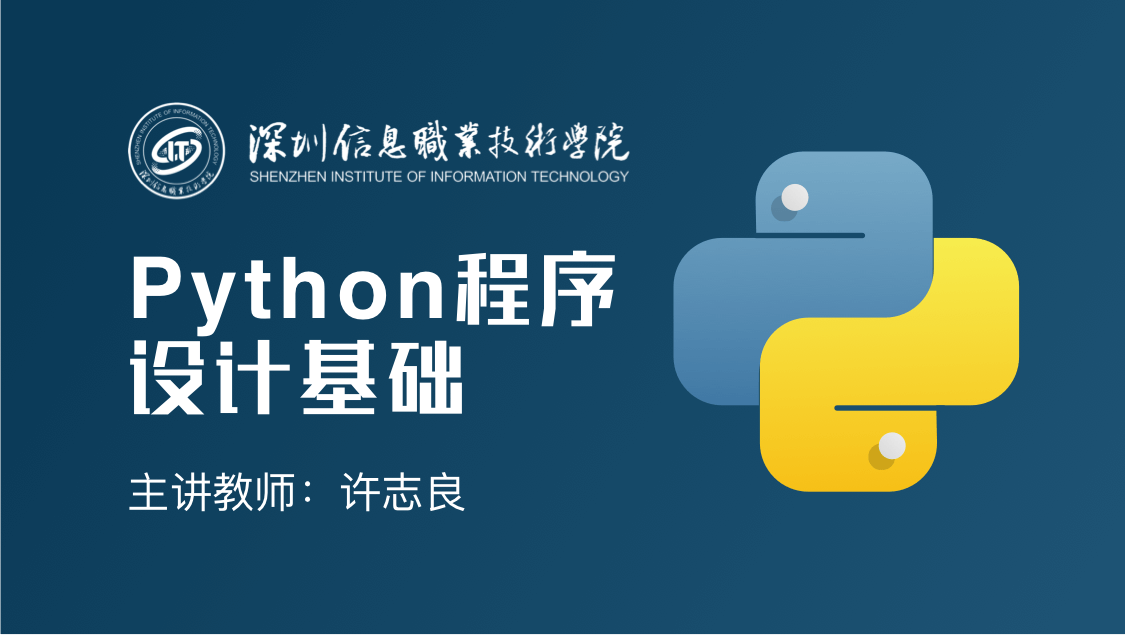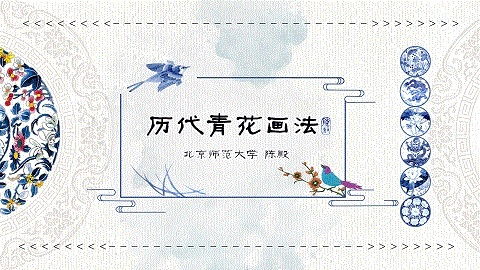
当前课程知识点:庄子寓言及其智慧 > Module 4 On Pursuit 论追求 > 4.6 Experts' Views on Zhuangzi's Wisdom 庄子智慧专家谈 > 4.6.1 What are the 3 forms of “yan” and their relationships? 何为《庄子》三言及其关系?
我们的课程叫做
庄子寓言及其智慧。
我们之所以着眼于庄子的寓言,
是因为寓言是庄子一书的主体,
并且他的寓言被认为具有
重要的文学和哲学意义。
但是实际上,《庄子》的言说方式有3种:
分别是寓言,也就是我们课程里呈现的寓言故事,
卮言”和“重言”。
我们的一些同学
对《庄子》很感兴趣
并且想进一步了解
这3种言说方式
以及他们之间的关系。
我们知道,在战国时代,
有百家
争鸣。
所以,口才很重要。
这些大师的作品,
无论是崇尚文雅
还是崇尚朴素,
都考虑到了生动性,
《庄子》
是用“言”的三种形式写成的,
即“卮言”
不可端倪之言,
“重言”也就是真话,
名言,
“寓言”大致对应英文的fables 或者 allegories.
《庄子》便是运用“三言”来实现文本的生动性。
谢谢你。
《庄子寓言》篇中讲到:
庄子说
寓言十九,
是藉外论之;
“重言”(真话,名言)
有十七,
卮言(不可端倪之言)
每天都讲,
与自然的分际相吻合。
这些表述
对我们的同学们来说有点难理解,
您能详细解释一下吗?
寓言,也就是我们课程的fable
是比喻的发展
是比喻的一种高级形式。
我们在前面已经说过,
寓言这个词最早就是见于
庄子的这篇作品。
庄子认为世人都是有偏见的,
他们会赞同那些
和自己观点相同的人
而驳斥那些
和自己的观点相反的人
所以如果你
在自己的书里说你的观点正确,
就等于给自己的儿子说媒一样,
人们是不会相信的,
不如请别人
替你说。
寓言的作用就像这样。
“寓”就是寄托的意思,
不把道理直说,
而是寄托在故事中表达出来。
寓言这种言说方式
是《庄子》文本当中十分常用的。
这里的十九,我们把它理解为十分之九。
也就说,寓言占了
《庄子》文本的十分之九,
可见其数量是非常庞大的。
庄子一书中
关于重言的叙述,
马丁鲍尔默是这样翻译的:
重言十七,
所以已言也,
是为
耆艾。
您是怎么看待这段翻译的呢?
嗯,作为一个译者,
他尊重了原文。
翻译本身没有什么有问题。
只是我个人
对原文有一些不同的理解。
有人认为
重言就是“引用之言”
或者“长老之言”,
可是《庄子》自己明明说
“重言”是“用自己的语言”,
它与寓言不同
寓言要借助
外在人或事来论述。
而且庄子认为
有的人年纪虽大,但是却毫无人道,
那么他就是腐朽之人。
因此
把重言理解为“长老之言”也不准确。
所以马丁鲍尔默先生选择了
“sagacious elders”这个词。
他这个词用的很妙。
但还要注意,
从上面的分析,
我们认为重言
就是真心话,
是指表达作者的基本观点的那些言论。
庄子认为
世人糊涂,
所以不便和他们
庄重地认真地讲真心话。
多说些寓言故事,说说笑话,
他们才会听你的
才可能听进去。
马丁先生
把十七翻译成十分之七也没问题。
但是在我看来,
原文可能有点问题。
这里的“十七”是讹误。
这其实经常出现
因为古代典籍都是手写的,
传播过程可能出现这种讹误。
把“十七”改为“十一”之后
就与“十九”应和。
九成是寓言,
是借他人之口说的;
一成是重言(真心话),
是明确的论述自己的观点的。
还有每天都说的“卮言”,
则随机运用,穿插其中。
应该说这比较符合《庄子》一书的实际。
从上面的分析,
也可看出庄子的无奈:
只能大量借助寓言这样的形式
来寄托自己的思想,
因为自己的真心话无人肯听。
可见当时的时代风尚是如何的悲凉。
-1.1 Lesson 1 Module Guide 单元导学
--1.1.2 Lesson 1 Module Guide
-1.2 Lesson 2 The Man Named Zhuangzi 庄子其人
--1.2.1 Lesson 2 The Man Named Zhuangzi
--1.2.2 Lesson 2 The Man Named Zhuangzi
-1.3 Lesson 3 The Book of Zhuangzi 庄子其书
--1.3.1 Lesson 3 The Book of Zhuangzi
--1.3.2 Lesson 3 The Book of Zhuangzi
-1.4 Lesson 4 The Language of Zhuangzi 庄子其言
--1.4.1 Lesson 4 The Language of Zhuangzi
--1.4.2 Lesson 4 The Language of Zhuangzi
-1.5 Lesson 5 The Ideal Life of Zhuangzi 庄子其志
--1.5.1 Lesson 5 The Ideal Life of Zhuangzi
--1.5.2 Lesson 5 The Ideal Life of Zhuangzi
-1.6 Experts' Views on Zhuangzi's Wisdom 庄子智慧专家谈
--1.6.1 Is zhuangzi negative in nature? 庄子消极吗?
--Interview Question(1)
--1.6.2 Is zhuangzi still inspiring in today's society? 庄子过时了吗?
--Interview Question(2)
-1.7 Students' Understanding of Zhuangzi's Wisdom 庄子智慧学生说
--1.7.1 Zhuangzi's Spiritual World 庄子的精神世界
--1.7.2 The Development of Zhuangzi's Ideas 庄思想发展
--1.7.3 English Translation of Zhuangzi 庄子的英文翻译
--1.7.4 Introduction of Zhuangzi 庄子生平介绍
--1.7.5 Zhuangzi's Home State 庄子出生国
-2.1 Lesson 1 Module Guide 单元导学
--2.1.1 Lesson 1 Module Guide
-2.2 Lesson 2 On Taking Stock 审时度势
--2.2.1 Lesson 2 On Taking Stock
--2.2.2 Lesson 2 On Taking Stock
-2.3 Lesson 3 On Courage 何谓勇气
--2.3.2 Lesson 3 On Courage
-2.4 Lesson 4 On Contentment 知足常乐
--2.4.1 Lesson 4 On Contentment
--2.4.2 Lesson 4 On Contentment
-2.5 Lesson 5 On Modesty 谦虚谨慎
--2.5.2 Lesson 5 On Modesty
-2.6 Experts' Views on Zhuangzi's Wisdom 庄子智慧专家谈
--2.6.1 What’s the relationship between Zhuangzi and Huizi? 惠子与庄子是何关系?
--Interview Question(1)
--2.6.2 How do we understand the debate in Happy Fish? “鱼之乐”辩什么?
--Interview Question(2)
-2.7 Students' Understanding of Zhuangzi's Wisdom 庄子智慧学生说
--2.7.1 Historical Allusions and Cultural Stories 历史典故及文化故事
--2.7.2 Life Wisdom——Yan Hui Refuses Office 颜回拒官的启示
--2.7.3 On Taking Stock 审时度势候时机
--2.7.4 The Enlightenment of Zhuangzi's Fables 庄子的智慧启迪
-【计分贴3 第2单元】Character analysis
-3.1 Lesson 1 Module Guide 单元导学
--3.1.2 Lesson 1 Module Guide
-3.2 Lesson 2 Essence of Learning 习技要义
--3.2.1 Lesson 2 Essence of Learning
--3.2.2 Lesson 2 Essence of Learning
-3.3 Lesson 3 Importance of Practicing 重在实践
--3.3.1 Lesson 3 Importance of Practicing
--3.3.2 Lesson 3 Importance of Practicing
-3.4 Lesson 4 Internal Factors 内因影响
--3.4.1 Lesson 4 Internal Factors
--3.4.2 Lesson 4 Internal Factors
-3.5 Lesson 5 External Factors 外因作用
--3.5.1 Lesson 5 External Factors
--3.5.2 Lesson 5 External Factors
-3.6 Experts' Views on Zhuangzi's Wisdom 庄子智慧专家谈
--3.6.1 What are the differences between Zhuangzi’s and western fables? 庄子寓言与西方寓言有何异同?
--Interview Question(1)
--3.6.2 How is Zhuangzi’s fable different from Mencius’s and Han Feizi’s? 庄子寓言与孟子、韩非子寓言有何异同?
--Interview Question(2)
-3.7 Students' Understanding of Zhuangzi's Wisdom庄子智慧学生说
--3.7.1 Dongshi Imitated a Beauty Blindly 东施效颦
--3.7.2 The Knife of Cook Ting 庖丁解牛
--3.7.3 The Life of Huizi 惠子生平
--3.7.4 The Skill of Chicken Dissection 自编寓言—剖鸡之技
--3.7.5 Zhuangzi and Huizi 庄子与惠子
-征文赛
-征图赛
-4.1 Lesson 1 Module Guide 单元导学
--4.1.2 Lesson 1 Module Guide
-4.2 Lesson 2 Emphasizing the Soul 思想更重要
--4.2.1 Lesson 2 Emphasizing the Soul
--4.2.2 Lesson 2 Emphasizing the Soul
-4.3 Lesson 3 Pursuing Freedom 追求自由
--4.3.1 Lesson 3 Pursuing Freedom
--4.3.2 Lesson 3 Pursuing Freedom
-4.4 Lesson 4 Respecting the Nature 尊重天性
--4.4.1 Lesson 4 Respecting the Nature
--4.4.2 Lesson 4 Respecting the Nature
-4.5 Lesson 5 Searching for Dao 追求道
--4.5.1 Lesson 5 Searching for Dao
--4.5.2 Lesson 5 Searching for Dao
-4.6 Experts' Views on Zhuangzi's Wisdom 庄子智慧专家谈
--4.6.1 What are the 3 forms of “yan” and their relationships? 何为《庄子》三言及其关系?
--Interview Question(1)
--4.6.2 Why does Zhuangzi sing upon his wife's death? 庄子妻死为何鼓盆而歌?
--Interview Question(2)
-4.7 Students' Understanding of Zhuangzi's Wisdom 庄子智慧学生说
--4.7.1 Separation is for Better Reunion 分别是为了更好的重逢
--4.7.3 Respecting the Nature 自编寓言—尊重天性
--4.7.4 Zhuangzi's Wisdom in Life 智慧启迪
-【计分贴7 第4单元】Explore mind maps & character analyses
-5.1 Lesson 1 Module Guide 单元导学
--5.1.1 Lesson 1 Module Guide
-5.2 Lesson 2 Understanding the Rules 明其理
--5.2.1 Lesson 2 Understanding the Rules
--5.2.2 Lesson 2 Understanding the Rules
-5.3 Lesson 3 Transferring the Use 广其用
--5.3.1 Lesson 3 Transferring the Use
--5.3.2 Lesson 3 Transferring the Use
-5.4 Lesson 4 Perceiving the Self 接纳自我
--5.4.1 Lesson 4 Perceiving the Self
--5.4.2 Lesson 4 Perceiving the Self
-5.5 Lesson 5 Accepting the Others 容纳他人
--5.5.1 Lesson 5 Accepting the Others
--5.5.2 Lesson 5 Accepting the Others
-5.6 Experts' Views on Zhuangzi's Wisdom 庄子智慧专家谈
--5.6.1 What is the relationship between Laozi and Zhuangzi? 老子和庄子是何种关系?
--Interview Question(1)
--5.6.2 How to understand Laozi in the book of Zhuangzi? 如何看待《庄子》中的老子形象?
--Interview Question(2)
-5.7 Students' Understanding of Zhuangzi's Wisdom 庄子智慧学生说
--5.7.1 Uniformity of All Things 齐物论
--5.7.3 Baoya Snapped the String 伯牙绝弦
--5.7.4 Shang Yang Reform 商鞅变法
--5.7.5 The Butterfly Effect 蝴蝶效应
-6.1 Lesson 1 Module Guide 单元导学
--6.1.2 Lesson 1 Module Guide
-6.2 Lesson 2 Awareness of Danger 察觉危机
--6.2.1 Lesson 2 Awareness of Danger
--6.2.2 Lesson 2 Awareness of Danger
-6.3 Lesson 3 Acceptance of Death 淡泊生死
--6.3.1 Lesson 3 Acceptance of Death
--6.3.2 Lesson 3 Acceptance of Death
-6.4 Lesson 4 Tolerance of Co-existence 包容共存
--6.4.1 Lesson 4 Tolerance of Co-existence
--6.4.2 Lesson 4 Tolerance of Co-existence
-6.5 Lesson 5 Art of Love 爱亦有道
--6.5.2 Lesson 5 Art of Love
-6.6 Experts' Views on Zhuangzi's Wisdom 庄子智慧专家谈
--6.6.1 How was the book of Zhuangzi preserved? 《庄子》这本书是怎么流传至今的?
--Interview Question(1)
--6.6.2 How to critically perceive Zhuangzi’s thought? 如何辩证地理解庄子思想?
--Interview Question(2)
-6.7 Students' Understanding of Zhuangzi's Wisdom 庄子智慧学生说
--6.7.1 Zhuangzi's Philosophy in Our Daily Life 生活中的庄子哲学
--6.7.2 Singing While Beating the Earthen Basin 鼓盆而歌
--6.7.3 The Kungfu Jianghu of Jinyong 金庸的武侠江湖
--6.7.4 Philosophical Enlightenment 庄子哲学启示
--6.7.5 The Weaver at the Edge of the Cliff 自编寓言—崖边织者
-课程大作业---论文式讨论及互评活动
-Final Examination






